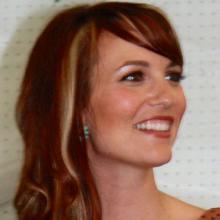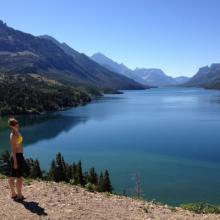Kari Grain
Why did you decide to pursue a graduate degree?
My experiential education has always given meaning, intensity, and far-reaching roots to my formal education. Whether through dialogue with a Rwandan genocide survivor, or an introspective hike in an old-growth forest, I have learned that "education" - especially the kind that transforms us – happens when we are present in our flesh, our environment, and our relationships. This realization motivated me to pursue a PhD so that I could explore these ideas further.
Why did you decide to study at UBC?
In addition to UBC's reputation as a global hub for service-learning and experiential education, I was drawn to UBC for the quality of life it offers. In the year that I've been here, I have spent an incredible amount of time on my bicycle, in public parks, and at interesting cultural events, and this has allowed me to work toward a PhD while also finding balance.
What is it specifically, that your program offers, that attracted you?
Our department has so many faculty who are engaged in service-learning, higher education, and global education, and I was excited at the prospect of learning from and working with them.
What was the best surprise about UBC or life in Vancouver?
The best surprise has been how I've fallen in love with cycling. I've never lived in a city that makes it so easy and rejuvenating to get around on two wheels.
What aspect of your graduate program do you enjoy the most or are looking forward to with the greatest curiosity?
I have been adding depth and breadth to my understanding of service-learning and community engagement through my GRA role in the Centre for Community Engaged Learning (CCEL). Working on and with service-learning programs and courses (such as Environmental Sciences 400) has given context to the literature I’ve been reading. And it helps that the CCEL staff are some of the most thoughtful and passionate people I’ve worked with.
In terms of ideas, embodied learning has emerged as a new area of research for me, and I’m looking forward to the (significant) challenge of weaving together post-colonial and critical theory with notions of the body’s role in experiential education, as well as Rumi’s ideas about the transience of the human experience. I’m fascinated by the distinction between the political and the existential in education, and by the possibilities for reimagining higher education.
What do you see as your biggest challenge(s) in your future career?
Finding a career that is simultaneously research-oriented, joyful, and rooted in social justice ideals.
How do you feel your program is preparing you for those challenges?
Role models surround me in my program, in the form of professors, fellow students, and community practitioners, all of whom are change-makers and educators on a daily basis; they show me each in their unique ways how we can do this work ethically and rigorously.
What aspects of your life or career before now have best prepared you for your UBC graduate program?
I had an incredible master’s supervisor at UCalgary, Dr. Darren Lund, who took me under his wing at a pivotal time when I very much needed somebody to believe in me. His mentorship and example taught me to approach academia with humour, humbleness, and a priority on our relationships with family and loved ones. In addition to his guidance and encouragement, my experiences of living, volunteering and traveling throughout Africa, South America, and the Middle East have formed a foundational understanding of myself and the global inequality that drives my work.
What do you like to do for fun or relaxation?
I paint, do pottery, go hiking, and attend as many live music shows as possible.
What advice do you have for new graduate students?
Pay attention to your needs outside of intellectual thought. Listen to your body, get ample exercise, get out to the mountains or the ocean, and find a project that you love as soon as possible. I've been so much clearer cognitively and intellectually since I started prioritizing balance and an embodied, holistic lifestyle.

